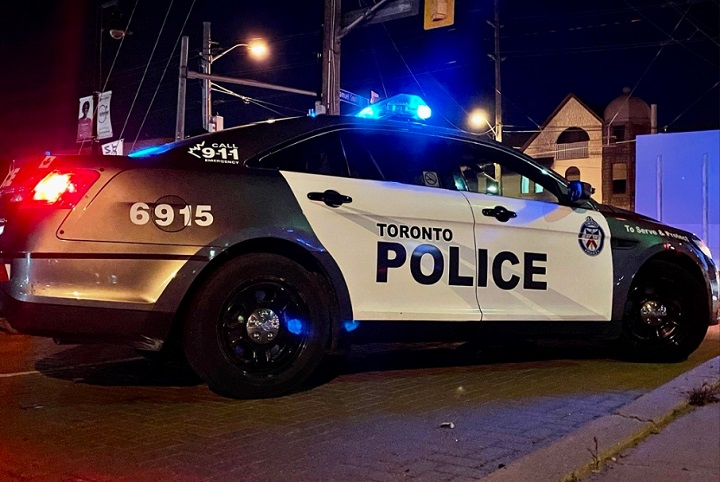How Parkdale is surviving gentrification
Posted March 21, 2017 4:18 pm.
Last Updated March 21, 2017 7:30 pm.
This article is more than 5 years old.
One by one, long-standing independent businesses in neighbourhoods across the city are closing, and many are pointing the finger at gentrification.
Both the owner of The Hideout, one of Queen Street West’s popular live music venues, and Dangerous Dan’s, one of the city’s most famous burger joints on Queen Street East, said increased rents caused by neighbourhood gentrification forced them to close their doors.
But one West Queen West neighbourhood seems to have found a way to expand its population while maintaining its charm.
Parkdale was once known to many as the wrong side of the bridge, but it has become a hub where small, unique, independent businesses are thriving.
Along this strip of Queen Street West, just west of Dufferin, there are a wide variety of offerings. There are local designers and jewelry makers, discount stores, fruit markets and even the mom-and-pop appliance repair shop.
What you won’t find are big-box stores, chains or franchises.
Sarah Dougall owns Made You Look, a jewelry store that moved into Parkdale 16 years ago, and said that was part of the appeal of the neighbourhood.
“Part of the reason we wanted to be on Queen Street in Parkdale was because it had the potential to become a changing neighbourhood,” she explained.
“We had the opportunity to set the tone … It was kind of a blank canvas. That is what was what was appealing about it.”
Made You Look is a unique business model, where 100 local designers not only display and sell their creations, but can also make and repair their own jewelry on site. Dougall bought the building back in 2001 and owns other properties along the strip.
“One cool thing about the hood is that a lot of shop owners own their properties, maybe 10 of them. So that’s a unique piece specifically about Parkdale. That’s why they haven’t gone anywhere.” Dougall said.
She added that landlords have played a big role in staving off the commercialization of the neigbourhood.
“We have a property for lease right now across the street. It’s on a corner and it has a beautiful facade. It would be perfect for a Starbucks but I would never do that, no matter how much money they were offering,” Dougall explained. “It goes entirely against the vibe of what we are trying to do here.”

Toronto city council also played a role in controlling the development of Parkdale. In 2012, the Queen West Restaurant by-law was introduced as a way to limit the number of big bars and restaurants moving into the neighbourhood.
Coun. Gord Perks helped spearhead the bylaw.
“Parkdale was becoming a nightclub zone,” Perks said. “A lot of those everyday uses were being pushed out. All that would have been left were nightclubs closed in the day serving people from outside the neighbourhood.”
The worry was big, money-making businesses would jack up rent and push out the mom-and-pop shops. Right now, only one in four storefronts is allowed to be a bar or nightclub.
“The great thing about Parkdale is that you have high-end restaurants and places where people with low incomes can sit and have a coffee,” Perks said. “But most of all, the services you need day to day are within walking distance. That’s the sweet spot of a neighbourhood.”
A study on the successes and failures of the Queen West Restaurant by-law is about to begin and should be presented to city council by the end of the year.








